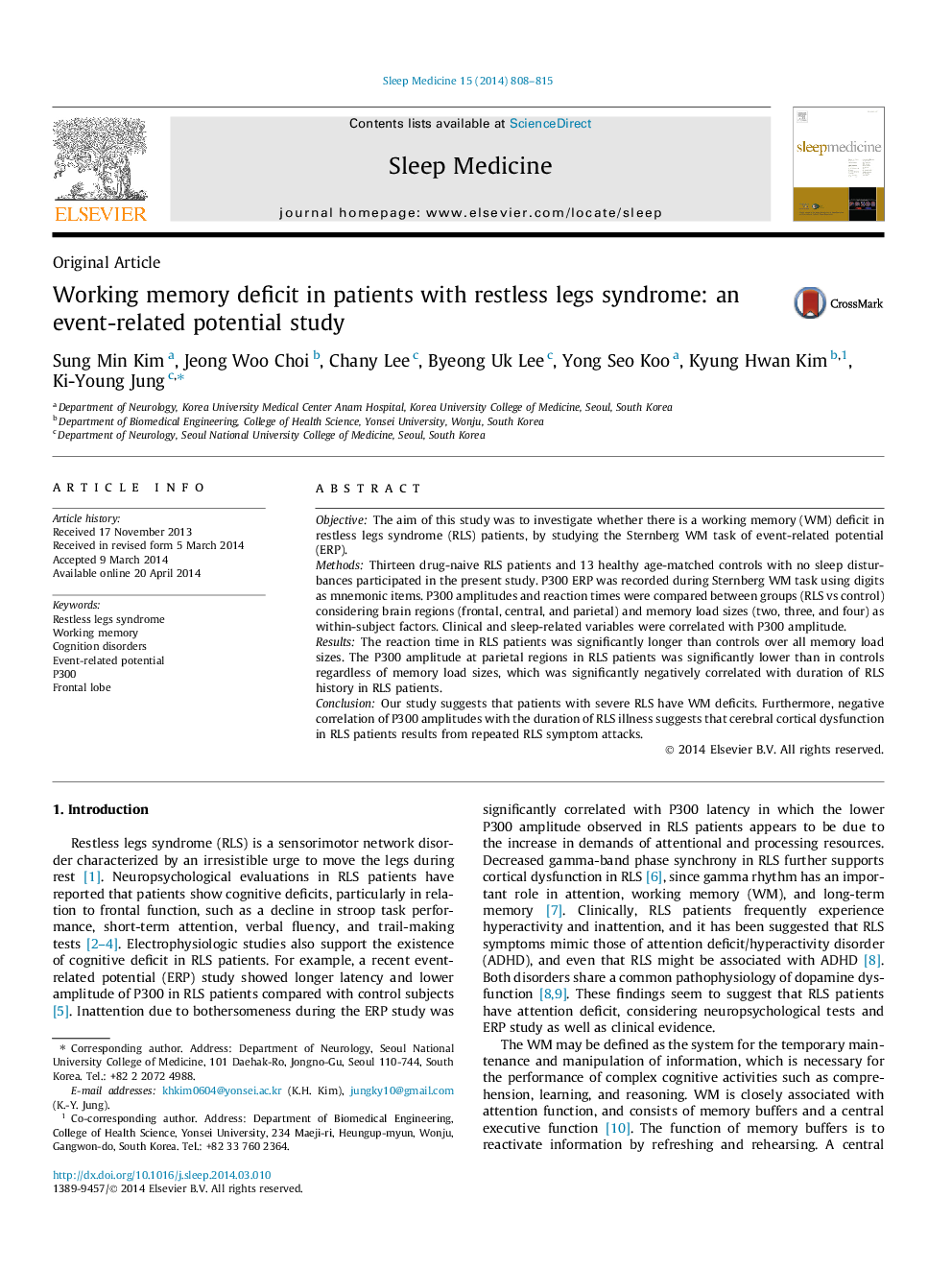| Article ID | Journal | Published Year | Pages | File Type |
|---|---|---|---|---|
| 3175893 | Sleep Medicine | 2014 | 8 Pages |
ObjectiveThe aim of this study was to investigate whether there is a working memory (WM) deficit in restless legs syndrome (RLS) patients, by studying the Sternberg WM task of event-related potential (ERP).MethodsThirteen drug-naive RLS patients and 13 healthy age-matched controls with no sleep disturbances participated in the present study. P300 ERP was recorded during Sternberg WM task using digits as mnemonic items. P300 amplitudes and reaction times were compared between groups (RLS vs control) considering brain regions (frontal, central, and parietal) and memory load sizes (two, three, and four) as within-subject factors. Clinical and sleep-related variables were correlated with P300 amplitude.ResultsThe reaction time in RLS patients was significantly longer than controls over all memory load sizes. The P300 amplitude at parietal regions in RLS patients was significantly lower than in controls regardless of memory load sizes, which was significantly negatively correlated with duration of RLS history in RLS patients.ConclusionOur study suggests that patients with severe RLS have WM deficits. Furthermore, negative correlation of P300 amplitudes with the duration of RLS illness suggests that cerebral cortical dysfunction in RLS patients results from repeated RLS symptom attacks.
